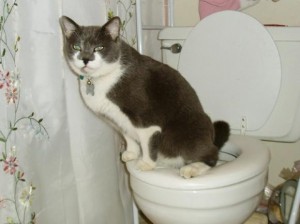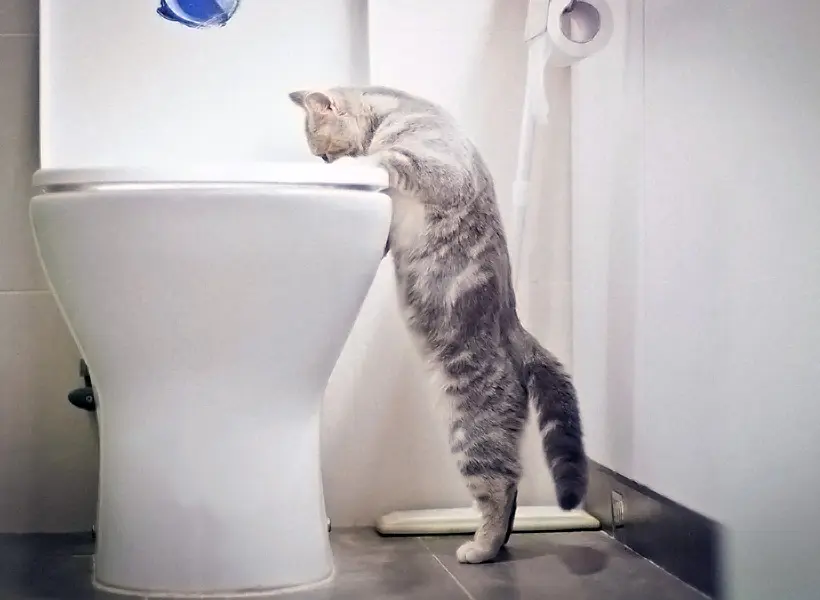Prevent Plumbing Problems: Never Flush Cat Poop Down Your Toilet - Expert Guidance
Prevent Plumbing Problems: Never Flush Cat Poop Down Your Toilet - Expert Guidance
Blog Article
Just how do you really feel on the subject of How to Dispose of Cat Poop and Litter Without Plastic Bags?

Introduction
As cat owners, it's important to be mindful of exactly how we dispose of our feline buddies' waste. While it may appear convenient to flush cat poop down the bathroom, this method can have damaging consequences for both the setting and human health.
Ecological Impact
Purging feline poop introduces damaging pathogens and bloodsuckers into the supply of water, posing a substantial risk to aquatic ecosystems. These contaminants can adversely affect marine life and compromise water top quality.
Wellness Risks
In addition to environmental problems, flushing feline waste can additionally posture health and wellness dangers to human beings. Cat feces may include Toxoplasma gondii, a bloodsucker that can cause toxoplasmosis-- a possibly extreme health problem, specifically for expectant females and people with weakened immune systems.
Alternatives to Flushing
Luckily, there are safer and much more responsible ways to get rid of feline poop. Take into consideration the complying with alternatives:
1. Scoop and Dispose in Trash
The most common approach of disposing of feline poop is to scoop it into an eco-friendly bag and toss it in the garbage. Make certain to make use of a specialized trash inside story and get rid of the waste without delay.
2. Use Biodegradable Litter
Go with biodegradable cat litter made from materials such as corn or wheat. These trashes are environmentally friendly and can be safely taken care of in the garbage.
3. Hide in the Yard
If you have a backyard, take into consideration hiding feline waste in an assigned area away from veggie yards and water resources. Make sure to dig deep enough to prevent contamination of groundwater.
4. Mount a Pet Waste Disposal System
Purchase an animal waste disposal system especially created for feline waste. These systems use enzymes to break down the waste, minimizing odor and ecological effect.
Conclusion
Liable animal possession prolongs past offering food and sanctuary-- it also entails proper waste administration. By refraining from flushing pet cat poop down the toilet and selecting different disposal methods, we can lessen our ecological impact and safeguard human health and wellness.
Why You Should Never Flush Cat Poop Down the Toilet
A rose by any other name might smell as sweet, but not all poop is created equal. Toilets, and our sewage systems, are designed for human excrement, not animal waste. It might seem like it couldn’t hurt to toss cat feces into the loo, but it’s not a good idea to flush cat poop in the toilet.
First and foremost, assuming your cat uses a litter box, any waste is going to have litter on it. And even the smallest amount of litter can wreak havoc on plumbing.
Over time, small amounts build up, filling up your septic system. Most litter sold today is clumping; it is made from a type of clay that hardens when it gets wet. Ever tried to scrape old clumps from the bottom of a litter box? You know just how cement-hard it can get!
Now imagine just a small clump of that stuck in your pipes. A simple de-clogger like Drano isn’t going to cut it. And that means it’s going to cost you big time to fix it.
Parasitic Contamination
Believe it or not, your healthy kitty may be harboring a nasty parasite. Only cats excrete Toxoplasma in their feces. Yet it rarely causes serious health issues in the cats that are infected. Most people will be fine too if infected. Only pregnant women and people with compromised immune systems are at risk. (If you’ve ever heard how women who are expecting are excused from litter cleaning duty, Toxoplasma is why.)
But other animals may have a problem if infected with the parasite. And human water treatment systems aren’t designed to handle it. As a result, the systems don’t remove the parasite before discharging wastewater into local waterways. Fish, shellfish, and other marine life — otters in particular — are susceptible to toxoplasma. If exposed, most will end up with brain damage and many will die.
Depending on the species of fish, they may end up on someone’s fish hook and, ultimately on someone’s dinner plate. If that someone has a chronic illness, they’re at risk.
Skip the Toilet Training
We know there are folks out there who like to toilet train their cats. And we give them props, it takes a lot of work. But thanks to the toxoplasma, it’s not a good idea.

I came across that post on Can You Flush Cat Poo or Litter Down the Toilet? while doing a lookup on the internet. Make sure you take the opportunity to share this blog post if you liked it. Thanks a bunch for your time. Kindly come by our site back soon.
Schedule Today! Report this page